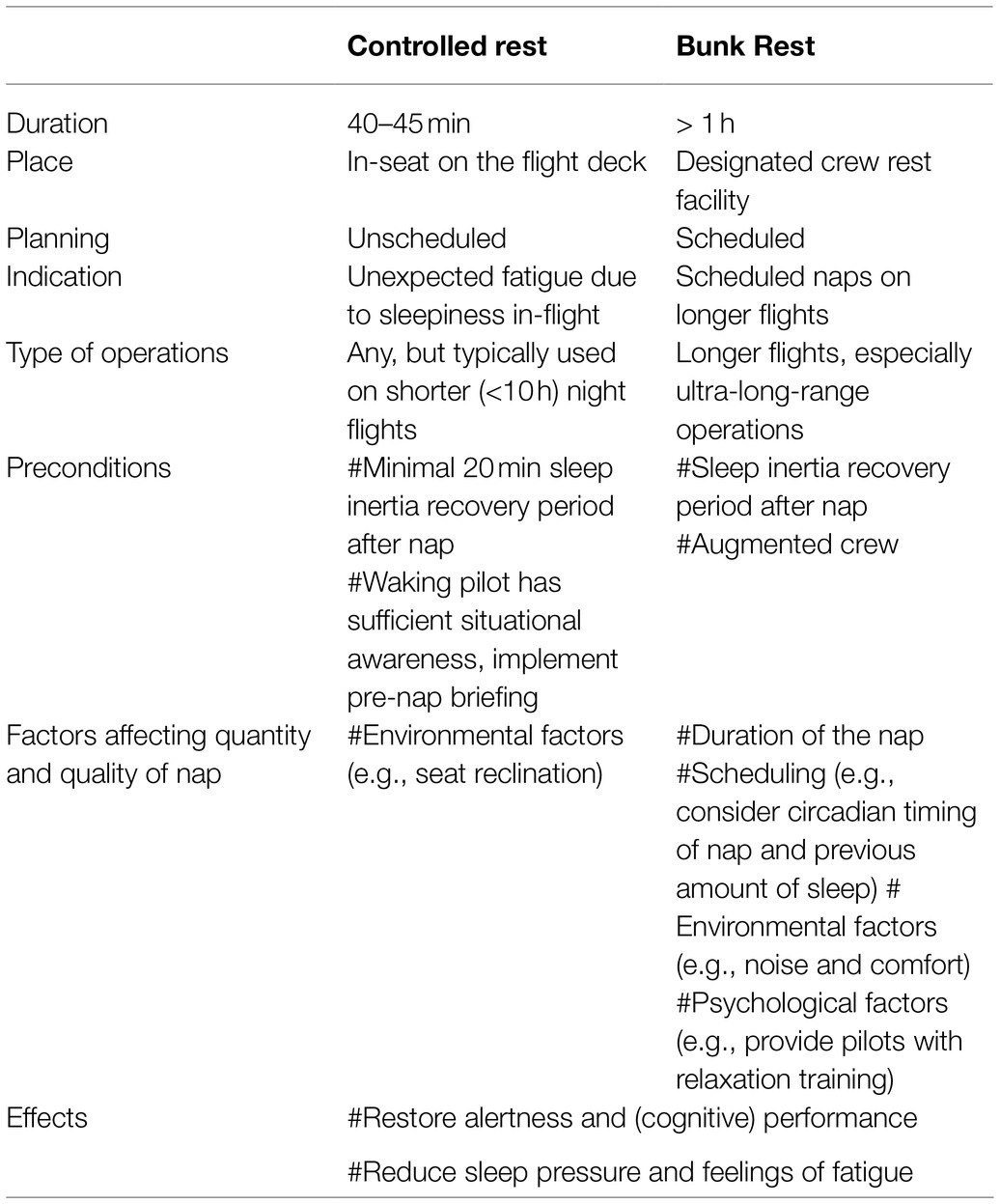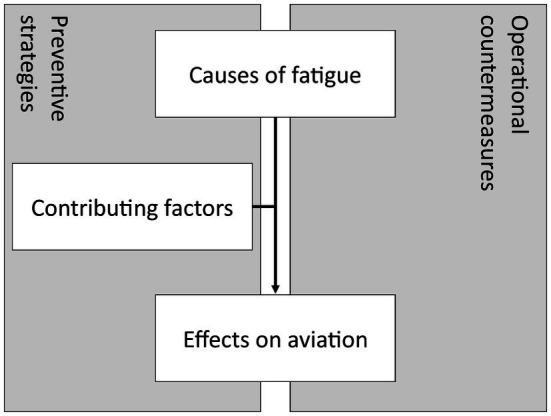Executive Summary
This study will investigate the impact of restricted sleep on the affect and overall state of short-haul pilots during flights. It is essential to approach the research from the perspective of short-haul flights because the current body of literature pays more attention to long-haul flights and their impact on pilots’ fatigue and sleep patterns. Nevertheless, pilots’ work during short-haul flights is demanding and tiring as fewer people share the workload.
Thus, this research will explore and analyze the available literature to make recommendations for airlines and future studies. It is expected that restricted sleep among short-haul pilots will adversely affect their mood and cause fatigue, a negative factor for effective performance. There is a significant gap in research regarding the strategies employed to address the issue of restricted sleep. Specifically, it remains to be determined what airlines can do to prevent fatigue among their short-haul pilots, ranging from implementing appropriate safety management systems to providing staff education and training.
Introduction
An adequate sleep schedule is essential for pilots operating on commercial flights. When professionals experience significant fatigue due to sleep loss, their state of mind alters, and they may make incorrect decisions, thereby risking the safety of the flight and the well-being of the crew and passengers. Notably, restricted sleep-related affective states and performance problems in aviation have been consistently underestimated and underappreciated despite ample research in this area. It has already been established that limited sleep significantly lowers pilots’ basic cognitive performance, mood, and fundamental piloting skills. Besides decreasing performance in flight, consistent and chronic fatigue resulting from a lack of sleep may have long-term effects on pilots.
Thus, this study aims to evaluate the effect of restricted sleep on negative affective states among commercial pilots who operate on short-haul flights. It is essential to focus on short-haul flights as one of the external factors affecting pilots’ sleep patterns, as they are more restricted. For example, during long-haul flights, pilots have more opportunities to get some sleep in-flight.
Moreover, some planes have specially equipped cabins explicitly created for pilots to rest during long-haul flight shifts (van den Berg, 2020). Thus, the study will describe the causes of sleep deprivation among the target population and its impact on individual pilots and aviation in general. It will also include recommendations for future research in this area.
Critical Review
Overview
Most study literature linked to human fatigue in the aviation industry has focused on long-term flights, even though pilots operating on short-term flights tend to experience high fatigue levels due to sleep restrictions. Although this appears reasonable, given that long-haul pilots have more extended periods of duty compared to short-haul pilots, they also have to do more night work and deal with the disruption of their body clocks linked to rapid time zone transitions (Gander & Graeber, 2007).
Nevertheless, two significant differences between short- and long-time operations make short-time flights demanding from a fatigue perspective. The first point is that short-haul flights are typically crewed by two pilots, whereas three or four pilots crew longer flights (Efthymiou et al., 2021). This means that short-haul pilots do not have the same opportunities to share the workload with more crew members and thus have some time to rest. The second point of difference is that most short-haul duty periods involve multiple flights per day, which increases the workload. As a result, short-haul pilots perform more landings and take-offs a day than long-haul pilots, which are the most dangerous and demanding stages of flight.
Fatigue is a negative consequence of insufficient sleep, causing disruptions to productivity in multiple areas. In their study, Slimani et al. (2018) found that mental fatigue negatively affects cognitive and aerobic performance in active male endurance athletes. In line with the literature presented by Drury et al. (2011), Fan and Smith (2020) also noted in their study that fatigue had a more negative impact on the performance of rail staff than the workload. High fatigue levels are correlated with impaired performance in visual search and logical reasoning tasks, findings that align with those of Aquino et al. (2022) and Sanaei and Fatemi (2021) from their independent studies.
Drury et al.’s Study
Research that has explicitly focused on short-term flights and pilots’ performance during them has reached a consensus on the factors affecting sleep deprivation. For example, Drury et al. (2011) argued that factors within an operating environment, such as fatigue and high external load, can affect optimal performance, which is critical in high-risk environments. They also alleged that HEA affects operational performance. According to the documented aviation accident reports, Drury et al. (2011) identified fatigue as a significant contributor to aviation accidents. The outlined link has helped examine the connections between employee motivation and related factors such as workload rates.
In their study, Drury et al. (2011) employed the normal flight sectors of a commercial airline. They used trained interviewers to engage captains and first officers as respondents. They recorded an average of 15.8 and 8.3 years of flying, respectively. They employed an observational methodology based on a Line Operations Safety Audit (LOSA) to examine the flight crew’s error management behavior in depth.
To examine the correlation between sleep and prior wake and the HEA markers, they used chi-square analysis with SPSS. Thus, the entire methodology employed from population and sample identification to data analysis fits well in this study, ensuring the credibility of the results. The methodological framework has paved the way for robust and meticulous examination.
Roach et al.’s Study
Similarly, using a questionnaire-based study, Roach et al. (2012) found that duty periods with early-morning starts were a significant cause of fatigue for short-term pilots in the commercial aviation industry. Consistent with the researchers’ initial hypotheses, pilots reported less sleep and experienced more significant fatigue when their duty periods began earlier in the morning compared to when they started later. Specifically, before late morning duties (beginning at 9-10 AM), pilots obtained an average of 6.7 hours of sleep in the last 12 hours, reporting an average level of fatigue (Roach et al., 2012).
However, before early morning duties (beginning at 4-5 AM), pilots only had an average of 5.5 hours of sleep in the previous 12 hours, reporting higher levels of perceived fatigue. These findings are supported by the conclusions drawn in the study by Arsintescu et al. (2021), which suggest that both early starts and late finishes of pilots’ shifts reduce their alertness during short-haul flights. In addition, it was found that all airline flights that disrupt the biological nights of pilots represent targets for fatigue risk management oversight.
The data on short-haul pilots’ fatigue levels before their morning duties indicates that the requirement to wake up early restricts the amount of sleep the professionals can obtain. Additionally, the impact of the internal body clock, which generates the drive for sleep, is stronger early in the morning than in mid-morning, resulting in higher levels of fatigue at the commencement of duty (Roach et al., 2012). Higher levels of fatigue due to restricted sleep contribute to adverse effects, which are highly undesirable in the airline sector and especially damaging to the work of pilots who bear significant responsibility for safety.
Implications of Findings
The aviation industry must respond to the findings from sleep-related research. To reduce fatigue levels, fatigue Risk Management Systems (FRMS) targeting short-haul pilots who work on early morning flights must be implemented. Such systems should be based on providing consistent defenses against fatigue-related risks, with one of the significant components focusing on roster production (Roach et al., 2012; Drury et al., 2011).
For example, logs with early-morning starts should be created only when necessary, while avoiding several consecutive early-morning duties for the same pilots whenever possible. In addition, an essential component of an effective FRMS is the training and education of pilots, with a focus on maximizing the amount of sleep they get immediately before their early-morning duties. Pilots must also know how to identify the circumstances where the chances of fatigue are elevated and learn how to manage the risks associated with fatigue-associated negative affect.
Conclusion
This study aimed to elucidate the relationship between fatigue and pilot performance. The report presented and analyzed the available research on sleep deprivation among pilots who perform short-haul flights. The focus on short-haul flights was placed because pilots who complete several flights per day cannot share their workload with additional crew members, while also having to perform more take-offs and landings, which are laborious and hazardous. Pilots who experience a lack of sleep have a higher risk of developing negative emotions, which creates an unfavorable environmental factor for professional performance.
To prevent the development of negative affect among pilots, airlines must train their staff on proper sleep practices and establish reliable Fatigue Risk Management Systems that take into account the needs and expectations of pilots. It is expected that change will not happen overnight, but consistent and effective methods are necessary for ensuring that pilots get enough rest and are well-prepared for flights.
Recommendations
The current study revealed that most research exploring the relationship between sleep deprivation and pilots’ performance focused on long-haul flights. However, short-term flights can be even more challenging because they occur more frequently and require more workload. Therefore, one of the recommendations for future research is to include more studies in this context, elaborating on the findings that early morning duties have the most adverse effect on pilots’ affect and fatigue levels. Additionally, it is recommended that the effectiveness of the currently implemented Fatigue Risk Management Systems at airlines be evaluated to identify best practices and ineffective strategies.
References
Aquino, M., Petrizzo, J., Otto, R. M., & Wygand, J. (2022). The impact of fatigue on performance and biomechanical variables – A narrative review with prospective methodology. Biomechanics, 2(4), 513-524. Web.
Drury, D. A., Ferguson, S. A., & Thomas, M. J. (2012). Restricted sleep and negative affective states in commercial pilots during short-haul operations. Accident Analysis & Prevention, 45, 80-84. Web.
Efthymiou, M., Whiston, S., O’Connell, J. F., & Brown, G. D. (2021). Flight crew evaluation of the flight time limitations regulation. Case Studies on Transport Policy, 9(1), 280-290. Web.
Fan, J., & Smith, A. P. (2020). Effects of occupational fatigue on cognitive performance of staff from a train operating company: A field study. Frontiers in Psychology, 11. Web.
Gander, P. H., & Graeber, R. C. (2007). Sleep in pilots flying short-haul commercial schedules. Ergonomics, 30(9), 1365-1377. Web.
Roach, G., Sargent, C., Darwent, D., & Dawson, D. (2012). Duty periods with early start times restrict the amount of sleep obtained by short-haul airline pilots. Accident Analysis and Prevention, 455, 22-26. Web.
Sanaei, N., & Fatemi, A. (2021). Defects in additive manufactured metals and their effect on fatigue performance: a state-of-the-art review. Progress in Materials Science, 117. Web.
Slimani, M., Znazen, H., Bragazzi, N. L., Zguira, M. S., & Tod, D. (2018). The effect of mental fatigue on cognitive and aerobic performance in adolescent active endurance athletes: Insights from a randomized counterbalanced, cross-over trial. Journal of Clinical Medicine, 7(12), 510. Web.
van den Berg, M. J., Signal, T. L., & Gander, P. H. (2020). Fatigue risk management for cabin crew: The importance of company support and sufficient rest for work-life balance-a qualitative study. Industrial Health, 58(1), 2–14. Web.
Wingelaar-Jagt, Y. Q., Wingelaar, T. T., Riedel, W. J., & Ramaekers, J. G. (2021). Fatigue in aviation: Safety risks, preventive strategies and pharmacological interventions. Frontiers in Physiology, 12. Web.
Appendix

Note. This table was obtained from the study that Wingelaar-Jagt et al. (2021) conducted in their work Fatigue in Aviation: Safety Risks, Preventive Strategies and Pharmacological Interventions. The table reveals various factors of rest and their overall impact on a person.

Note. This figure was obtained from the study that Wingelaar-Jagt et al. (2021) conducted in their work Fatigue in Aviation: Safety Risks, Preventive Strategies and Pharmacological Interventions. It is an illustration of the root cause analysis of fatigue and areas of influence of fatigue management in aviation.